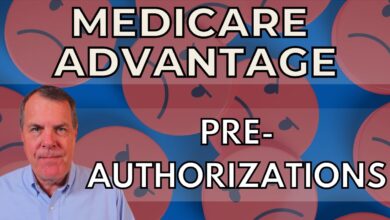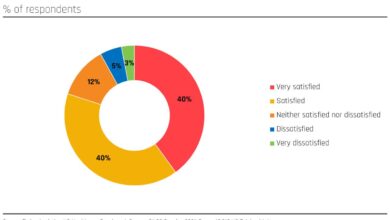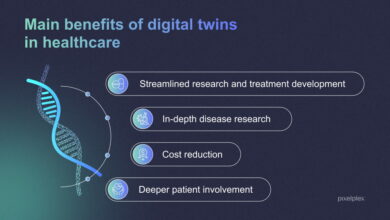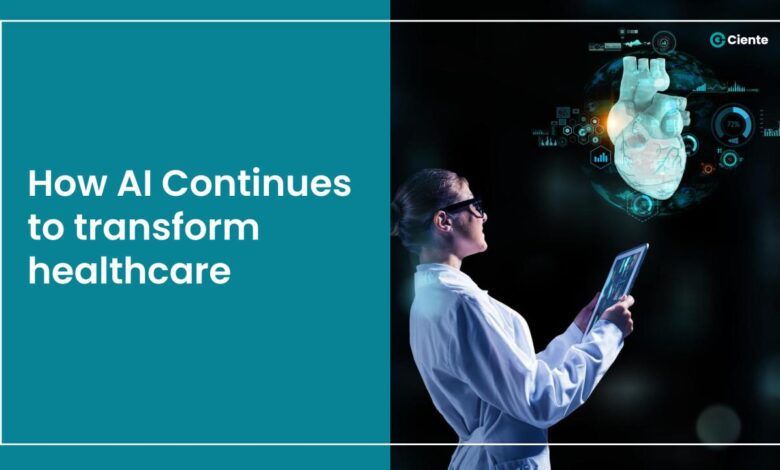
How Experts See AI Changing Healthcare Supply Chains
How experts see AI changing healthcare supply chains is a fascinating and rapidly evolving topic. We’re on the cusp of a revolution, where artificial intelligence isn’t just a futuristic concept, but a tangible force reshaping how medical products are discovered, manufactured, distributed, and ultimately, reach patients. From accelerating drug development to optimizing logistics and personalizing medicine, AI’s influence is profound and promises to address some of the most pressing challenges in healthcare delivery.
This exploration dives into the perspectives of experts, examining both the exciting possibilities and the crucial ethical considerations.
This post will cover AI’s impact across the healthcare supply chain, from the lab bench to the patient’s bedside. We’ll look at how AI is streamlining drug discovery, improving inventory management, personalizing treatment, and even combating counterfeit medical devices. But it’s not all smooth sailing; we’ll also address the ethical dilemmas and regulatory hurdles that need to be navigated to ensure responsible AI implementation.
AI’s Impact on Drug Discovery and Development
The pharmaceutical industry is undergoing a dramatic transformation, fueled by the rapid advancements in artificial intelligence (AI). AI is no longer a futuristic concept; it’s actively reshaping how drugs are discovered, developed, and brought to market, promising faster timelines, reduced costs, and ultimately, better treatments for patients. This shift involves leveraging AI’s capabilities in data analysis, pattern recognition, and prediction to overcome traditional limitations.
AI Accelerates Drug Candidate Identification
AI significantly accelerates the identification of potential drug candidates by analyzing vast datasets of biological information. Traditional methods rely heavily on trial-and-error, often taking years to identify promising molecules. AI algorithms, however, can sift through millions of compounds, identifying those with the highest probability of binding to specific targets and exhibiting therapeutic effects. This process is drastically sped up through machine learning models trained on existing data, allowing researchers to prioritize promising candidates for further investigation, thereby saving time and resources.
For instance, AI can predict the binding affinity of molecules to target proteins with greater accuracy than traditional methods, enabling researchers to focus on the most promising candidates.
AI Optimizes Clinical Trial Design and Execution, How experts see ai changing healthcare supply chains
Clinical trials are a crucial but often lengthy and expensive phase of drug development. AI plays a vital role in optimizing this process. By analyzing patient data and historical trial results, AI can predict the likelihood of success for different trial designs, helping researchers select the most efficient and effective strategies. AI can also assist in patient recruitment, identifying individuals most likely to benefit from a particular treatment and ensuring the trial’s diversity and representativeness.
Furthermore, AI can monitor patient progress in real-time, detecting adverse events early and optimizing treatment strategies. This leads to faster trial completion and more reliable results. For example, AI algorithms can be used to predict which patients are most likely to respond to a particular treatment, thereby improving the efficiency of clinical trials.
AI Improves Prediction of Drug Efficacy and Safety
Predicting a drug’s efficacy and safety is a critical challenge in pharmaceutical research. AI algorithms can analyze vast datasets of chemical structures, biological activity, and clinical trial data to identify patterns that predict a drug’s effectiveness and potential side effects. This allows researchers to assess the risks and benefits of a drug candidate more accurately, reducing the likelihood of failure in later stages of development.
AI can also identify potential drug interactions and predict adverse events before they occur in human trials. This leads to safer and more effective drugs reaching the market. For instance, AI models can be trained to predict the likelihood of a drug causing specific adverse events, helping researchers to mitigate risks and improve patient safety.
Examples of AI-Powered Tools in Pharmaceutical R&D
Several AI-powered tools are currently used in pharmaceutical research and development. Atomwise uses AI to design novel drug molecules, while Exscientia leverages AI to accelerate the drug discovery process. BenchSci employs AI to analyze images from microscopic experiments, aiding in drug target identification. These are just a few examples of how AI is transforming the pharmaceutical industry.
| Task | Traditional Methods | AI-Driven Approaches | Benefits of AI |
|---|---|---|---|
| Drug Target Identification | Manual literature review, high-throughput screening | Machine learning algorithms analyzing genomic and proteomic data | Faster identification, increased accuracy |
| Lead Compound Optimization | Trial and error, chemical synthesis | AI-powered design and optimization of molecules | Reduced time and cost, improved efficacy |
| Clinical Trial Design | Statistical modeling, expert opinion | AI-powered prediction of trial success, patient stratification | Improved efficiency, reduced costs |
| Safety and Efficacy Prediction | Animal studies, early clinical trials | AI models predicting drug interactions and adverse events | Enhanced safety, improved efficacy |
AI-Driven Supply Chain Optimization and Logistics
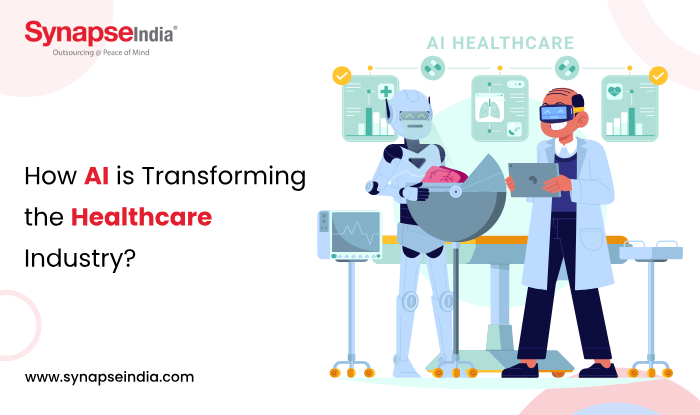
Source: synapseindia.com
The healthcare industry faces unique supply chain challenges, from the delicate nature of medical products to the urgent need for timely delivery. AI is emerging as a powerful tool to address these complexities, offering the potential for significant improvements in efficiency, resilience, and cost-effectiveness. By leveraging predictive analytics, machine learning, and automation, AI can revolutionize how healthcare organizations manage their supply chains, ultimately leading to better patient care.AI’s application in healthcare supply chain optimization goes far beyond simple automation.
It allows for a proactive and intelligent approach to managing the flow of goods, from procurement to delivery. This proactive approach is crucial in mitigating risks and ensuring that essential medical supplies are available when and where they are needed.
Predicting and Managing Disruptions
AI algorithms can analyze vast datasets encompassing historical supply chain data, weather patterns, geopolitical events, and even social media sentiment to identify potential disruptions. For example, an AI system could predict a shortage of a specific medication due to a factory closure in a hurricane-prone region, triggering early interventions like securing alternative suppliers or increasing inventory levels. This predictive capability allows for proactive mitigation strategies, minimizing the impact of unforeseen events on patient care.
This contrasts sharply with traditional reactive methods, which often lead to delays and shortages.
Improving Inventory Management and Reducing Waste
AI-powered inventory management systems optimize stock levels based on real-time demand forecasting and consumption patterns. By analyzing historical data and integrating information from electronic health records (EHRs) and point-of-care systems, AI can accurately predict future needs, minimizing the risk of stockouts and overstocking. This precise inventory control leads to significant cost savings by reducing waste from expired or obsolete medications and supplies.
For instance, a hospital system using AI could significantly reduce its inventory holding costs by optimizing stock levels of frequently used items like bandages and syringes, freeing up capital for other investments.
Optimizing Transportation and Delivery Routes
AI algorithms can optimize transportation routes and delivery schedules, reducing delivery times and transportation costs. By considering factors such as traffic conditions, weather patterns, and delivery deadlines, AI can dynamically adjust routes to ensure timely delivery of critical medical supplies. This is particularly crucial for time-sensitive items like blood products or organ transplant materials. Imagine a scenario where an AI system reroutes a delivery of urgently needed vaccines to bypass a traffic jam, ensuring they reach the destination on time.
Challenges in Implementing AI-Driven Solutions
Implementing AI-driven solutions in healthcare logistics presents several challenges. Successfully integrating AI requires careful consideration of these hurdles:
- Data Integration and Interoperability: Healthcare data is often siloed across different systems, making it difficult to consolidate and analyze the data needed to train effective AI models. Standardizing data formats and improving interoperability between different systems is crucial.
- Data Security and Privacy: Healthcare data is highly sensitive, and ensuring the security and privacy of this data is paramount. Robust security measures and adherence to data privacy regulations are essential.
- Cost of Implementation and Maintenance: Implementing and maintaining AI systems can be expensive, requiring significant investment in software, hardware, and skilled personnel. This can be a barrier for smaller healthcare organizations.
- Lack of Skilled Personnel: A shortage of professionals with the expertise to develop, implement, and maintain AI systems is a significant challenge. Investing in training and education is crucial to address this gap.
- Resistance to Change: Healthcare professionals may be resistant to adopting new technologies, particularly if they are unfamiliar with AI or concerned about its impact on their workflows. Effective change management strategies are necessary to ensure successful implementation.
AI and Personalized Medicine
The rise of personalized medicine, driven by advancements in genomics and data analytics, is revolutionizing healthcare. This shift, however, presents significant challenges and opportunities for healthcare supply chains. No longer are we dealing with a one-size-fits-all approach to treatment; instead, we’re moving towards highly individualized therapies tailored to a patient’s unique genetic makeup, lifestyle, and medical history. This fundamental change necessitates a radical rethinking of how we forecast demand, manage inventory, and deliver medical products and services.Personalized medicine dramatically alters demand forecasting for medical supplies.
The traditional approach, based on population averages and historical trends, becomes inadequate. Instead, we need predictive models that can accurately anticipate the demand for specific treatments based on individual patient profiles and predicted treatment responses. This requires integrating vast amounts of patient data, including genomic information, medical history, and lifestyle factors, into sophisticated AI-powered forecasting algorithms. For example, a cancer clinic using personalized oncology may need to forecast demand for specific targeted therapies based on the genetic profiles of incoming patients, rather than relying on broad historical sales data for all cancer treatments.
The accuracy of these forecasts directly impacts the efficiency and cost-effectiveness of the entire supply chain.
AI-Powered Demand Forecasting for Personalized Medicine
AI algorithms, particularly machine learning models, are uniquely suited to the complexities of personalized medicine demand forecasting. These algorithms can analyze large datasets of patient information, identify patterns and correlations, and generate highly accurate predictions of future demand for specific treatments and supplies. For instance, a recurrent neural network (RNN) could be trained on historical patient data, including genomic profiles, treatment responses, and the timing of medication delivery, to predict the need for specific drugs and associated supplies months in advance.
This allows for proactive inventory management, minimizing stockouts and reducing waste. Further, AI can continuously learn and adapt to changing patterns in patient populations and treatment strategies, ensuring the forecasting remains accurate and relevant.
AI-Enabled Personalized Delivery of Medical Products and Services
AI can personalize the delivery of medical products and services in several ways. Beyond accurate forecasting, AI can optimize logistics and routing to ensure timely delivery of personalized treatments. This includes optimizing delivery routes for specialized medications requiring specific temperature control or handling, and scheduling appointments and procedures based on individual patient needs and preferences. For instance, AI-powered route optimization could prioritize the delivery of a life-saving gene therapy to a patient in need, considering traffic patterns and other real-time factors.
Moreover, AI-powered chatbots can provide personalized information and support to patients, answering their questions and guiding them through the process of receiving their personalized treatment.
Experts predict AI will revolutionize healthcare supply chains, optimizing inventory management and predicting demand with unprecedented accuracy. A key aspect of this transformation involves the creation of highly realistic simulations, as highlighted in this fascinating study on widespread digital twins in healthcare: study widespread digital twins healthcare. This research directly supports the potential of AI to improve forecasting and resource allocation within the complex healthcare supply chain, ultimately leading to better patient care.
Challenges in Managing Personalized Medicine Supply Chains
Managing the complexities of a personalized medicine supply chain presents significant challenges. The highly individualized nature of treatments leads to a proliferation of SKUs (stock keeping units), requiring sophisticated inventory management systems to track and manage a vast array of specialized products. Data privacy and security are paramount, as patient data must be handled with the utmost care to comply with regulations like HIPAA.
Furthermore, the need for rapid innovation and adaptation in the face of new discoveries and evolving treatment strategies demands agile and flexible supply chains capable of responding quickly to changes in demand. The integration of diverse data sources—from electronic health records to genomic databases—also poses a significant technological hurdle.
Hypothetical AI-Driven Personalized Medicine Supply Chain System
A hypothetical AI-driven system for managing personalized medicine supply chains could integrate several key components. First, a centralized data platform would consolidate patient data from various sources, ensuring data integrity and accessibility. Second, AI-powered demand forecasting algorithms would analyze this data to predict future demand for specific treatments and supplies. Third, an AI-driven logistics system would optimize inventory management, warehouse operations, and delivery routes, ensuring timely delivery of personalized medications and therapies.
Fourth, a patient portal would provide personalized information and support, empowering patients to actively participate in their treatment journey. Finally, a robust cybersecurity framework would protect sensitive patient data from unauthorized access. This integrated system would leverage the power of AI to streamline operations, improve efficiency, and ultimately enhance patient outcomes in the era of personalized medicine.
Experts predict AI will revolutionize healthcare supply chains, streamlining logistics and improving resource allocation. This is evident in the rapid advancements we’re seeing, like the integration of AI in clinical documentation; for example, check out how Nuance integrates generative AI scribe with Epic EHRs , which could significantly impact data management and ultimately, supply chain efficiency. Ultimately, these AI-driven changes promise a more responsive and efficient healthcare system.
AI in Medical Device Manufacturing and Distribution
The healthcare industry is undergoing a significant transformation driven by advancements in artificial intelligence (AI). AI’s impact extends beyond drug discovery and personalized medicine; it’s revolutionizing the manufacturing and distribution of medical devices, improving efficiency, quality, and safety across the entire supply chain. This section will explore the multifaceted ways AI is reshaping this critical aspect of healthcare.AI improves the efficiency and quality of medical device manufacturing through various applications.
These range from predictive maintenance of machinery to sophisticated quality control processes, ultimately leading to faster production times and fewer defects. The integration of AI is not just about incremental improvements; it’s about fundamentally changing how medical devices are made, ensuring higher reliability and safety for patients.
AI-Enhanced Quality Control in Medical Device Production
Traditional quality control in medical device manufacturing relies heavily on manual inspection and statistical sampling. This approach is time-consuming, prone to human error, and often fails to detect subtle defects. AI-powered quality assurance, however, leverages computer vision and machine learning algorithms to analyze images and data from various stages of production, identifying defects with significantly higher accuracy and speed than human inspectors.
Experts predict AI will revolutionize healthcare supply chains, optimizing inventory management and predicting demand with unprecedented accuracy. To get a glimpse of this future, check out this insightful interview with Amy Waldron on google cloud healthcare amy waldron generative AI , where she discusses how generative AI is already impacting the sector. This kind of innovation promises to streamline processes and ultimately improve patient care by ensuring timely access to vital medical resources.
For example, AI can analyze high-resolution images of manufactured implants to detect microscopic cracks or imperfections invisible to the naked eye, ensuring only flawless products reach the market. This leads to a reduction in waste, improved product quality, and enhanced patient safety. The shift from manual to AI-driven quality control represents a paradigm shift in manufacturing precision and efficiency.
AI in Optimizing Medical Device Distribution and Tracking
Efficient and reliable distribution is paramount for medical devices, especially those used in emergency situations or for life-sustaining treatments. AI-powered logistics systems optimize delivery routes, predict demand fluctuations, and manage inventory levels with unprecedented accuracy. For instance, AI algorithms can analyze historical sales data, weather patterns, and real-time traffic conditions to optimize delivery schedules, ensuring timely arrival of critical medical supplies.
Furthermore, AI-enabled tracking systems provide real-time visibility into the location and status of devices throughout the supply chain, reducing delays and improving accountability. This enhanced visibility minimizes disruptions and ensures that medical devices reach their destinations quickly and efficiently.
AI’s Role in Counterfeit Medical Device Detection
The global market for counterfeit medical devices is a significant concern, posing serious risks to patient safety and public health. AI offers powerful tools to combat this issue. Machine learning algorithms can be trained to identify patterns and anomalies in product packaging, labeling, and even the devices themselves, flagging potentially counterfeit items for further investigation. For example, AI can analyze images of packaging to detect subtle variations in font, color, or printing quality that indicate counterfeiting.
This proactive approach significantly enhances the ability to identify and remove counterfeit medical devices from the supply chain, safeguarding patients from potentially harmful products. The implementation of AI-powered counterfeit detection systems represents a substantial advancement in protecting patients and maintaining the integrity of the medical device supply chain.
Ethical and Regulatory Considerations of AI in Healthcare Supply Chains
The integration of artificial intelligence (AI) into healthcare supply chains promises significant improvements in efficiency and effectiveness. However, this transformative technology also introduces a complex web of ethical and regulatory challenges that must be carefully navigated to ensure responsible and beneficial implementation. Ignoring these considerations risks undermining public trust and hindering the widespread adoption of AI in this critical sector.
Data Privacy and Security in AI-Powered Healthcare Supply Chains
AI algorithms rely heavily on data, and in healthcare, this data is often highly sensitive, encompassing patient information, medical records, and supply chain logistics. The potential for data breaches and misuse is substantial. Robust data anonymization techniques, secure data storage protocols, and strict adherence to regulations like HIPAA (in the US) and GDPR (in Europe) are crucial to protect patient privacy and maintain public trust.
Failure to safeguard this data could lead to significant legal repercussions and reputational damage for organizations. For instance, a hypothetical breach exposing patient allergy information could lead to severe adverse reactions if incorrect medication is dispensed. Therefore, robust cybersecurity measures, including encryption and access control, are paramount.
Algorithmic Bias and Fairness in Healthcare AI
AI algorithms are trained on data, and if that data reflects existing societal biases, the resulting algorithms will perpetuate and even amplify those biases. In healthcare supply chains, this could lead to inequitable access to resources, disproportionately affecting vulnerable populations. For example, an AI system used to predict medication needs might under-predict the requirements of certain demographics due to biases present in the training data, resulting in shortages for those communities.
Addressing this requires careful data curation, algorithmic auditing, and ongoing monitoring for bias. Techniques like fairness-aware machine learning can help mitigate these issues.
Accountability and Transparency in AI Decision-Making
When AI systems make decisions that impact healthcare supply chains, it’s crucial to establish clear lines of accountability. If an AI system makes an error leading to a medication shortage or a delay in critical supplies, who is responsible? Transparency in how these systems operate is also vital. Explainable AI (XAI) techniques are gaining traction to provide insights into the decision-making processes of AI models, enhancing accountability and building trust.
Establishing clear protocols for human oversight and intervention in critical situations is equally important. For example, a human-in-the-loop system would allow a healthcare professional to review and potentially override an AI’s decision regarding supply allocation.
The Regulatory Landscape for AI in Healthcare Supply Chains
The regulatory landscape for AI in healthcare is still evolving, with different countries and regions adopting varying approaches. Regulations often focus on data privacy, safety, and efficacy. Meeting these requirements is essential for the legal and ethical deployment of AI in healthcare supply chains. Compliance necessitates a thorough understanding of relevant regulations and the development of robust compliance programs.
Failure to comply can result in hefty fines, legal challenges, and damage to reputation. The FDA’s regulatory pathway for AI-powered medical devices, for example, illustrates the complexity and rigor involved in gaining approval for AI applications in healthcare.
Mitigating Risks and Best Practices
Mitigating the risks associated with AI in healthcare supply chains requires a multi-faceted approach. This includes investing in robust data security infrastructure, employing diverse and representative datasets for training AI models, implementing rigorous testing and validation procedures, and establishing clear ethical guidelines for AI development and deployment.
- Prioritize data privacy and security through robust encryption, access controls, and compliance with relevant regulations.
- Actively monitor and mitigate algorithmic bias through careful data curation, algorithmic auditing, and the use of fairness-aware machine learning techniques.
- Ensure transparency and accountability in AI decision-making through the use of explainable AI (XAI) and establishing clear protocols for human oversight.
- Establish clear ethical guidelines and governance frameworks for the development and deployment of AI in healthcare supply chains.
- Invest in ongoing education and training for healthcare professionals on the ethical and practical implications of AI.
- Collaborate with stakeholders, including patients, clinicians, and regulators, to foster trust and ensure responsible innovation.
The Future of AI in Healthcare Supply Chains
The integration of artificial intelligence (AI) into healthcare supply chains is no longer a futuristic fantasy; it’s rapidly becoming a reality. Experts predict a transformative decade ahead, marked by significant advancements and widespread adoption, impacting everything from drug discovery to patient access. This shift promises increased efficiency, reduced costs, and improved healthcare outcomes globally. However, navigating the ethical and regulatory complexities will be crucial for realizing the full potential of AI in this sector.
AI’s impact on healthcare supply chains will be multifaceted, driven by continuous innovation and refinement of existing technologies. We’re not just talking about incremental improvements; rather, we’re on the cusp of a paradigm shift that will fundamentally alter how healthcare resources are managed and delivered.
AI-Driven Predictive Analytics for Demand Forecasting
AI algorithms, particularly machine learning models, are poised to revolutionize demand forecasting. By analyzing historical data, current trends, and external factors like disease outbreaks or seasonal changes, AI can predict future demand for medications, medical devices, and other supplies with significantly greater accuracy than traditional methods. This allows for proactive inventory management, minimizing stockouts and reducing waste from expired or obsolete products.
For example, a hospital system using AI-powered demand forecasting could accurately predict a surge in demand for flu medication during peak season, ensuring sufficient stock is available to meet patient needs without overstocking. This translates to cost savings and improved patient care.
AI-Powered Optimization of Logistics and Transportation
AI is set to optimize every stage of the healthcare supply chain, from procurement to delivery. Real-time tracking and route optimization, powered by AI, will significantly reduce delivery times and minimize transportation costs. For instance, AI-powered systems can dynamically adjust delivery routes based on traffic conditions, weather patterns, and other real-time data, ensuring timely delivery of critical supplies, even in challenging circumstances.
Imagine a scenario where an AI system reroutes a shipment of life-saving medication to avoid a major traffic jam, ensuring the medication reaches the hospital in time for a crucial surgery.
Enhanced Inventory Management and Waste Reduction
AI-driven inventory management systems will move beyond simple stock level tracking. These systems will leverage machine learning to predict potential stockouts, spoilage, and obsolescence, enabling proactive interventions. This leads to significant cost savings by reducing waste and optimizing inventory levels. Consider a pharmaceutical company using AI to predict the expiration date of a batch of medication, allowing them to prioritize its distribution and prevent significant losses due to spoilage.
Improved Healthcare Accessibility and Affordability
The enhanced efficiency and cost savings brought about by AI in healthcare supply chains will directly impact healthcare accessibility and affordability. By optimizing logistics and reducing waste, AI can lower the overall cost of healthcare goods and services. This makes essential medicines and medical devices more accessible to underserved populations and reduces the financial burden on patients and healthcare systems.
For example, in remote areas with limited infrastructure, AI-powered drone delivery systems could ensure timely access to essential medications, bridging geographical barriers and improving healthcare outcomes. This could drastically improve health equity in underserved communities.
Closing Notes: How Experts See Ai Changing Healthcare Supply Chains
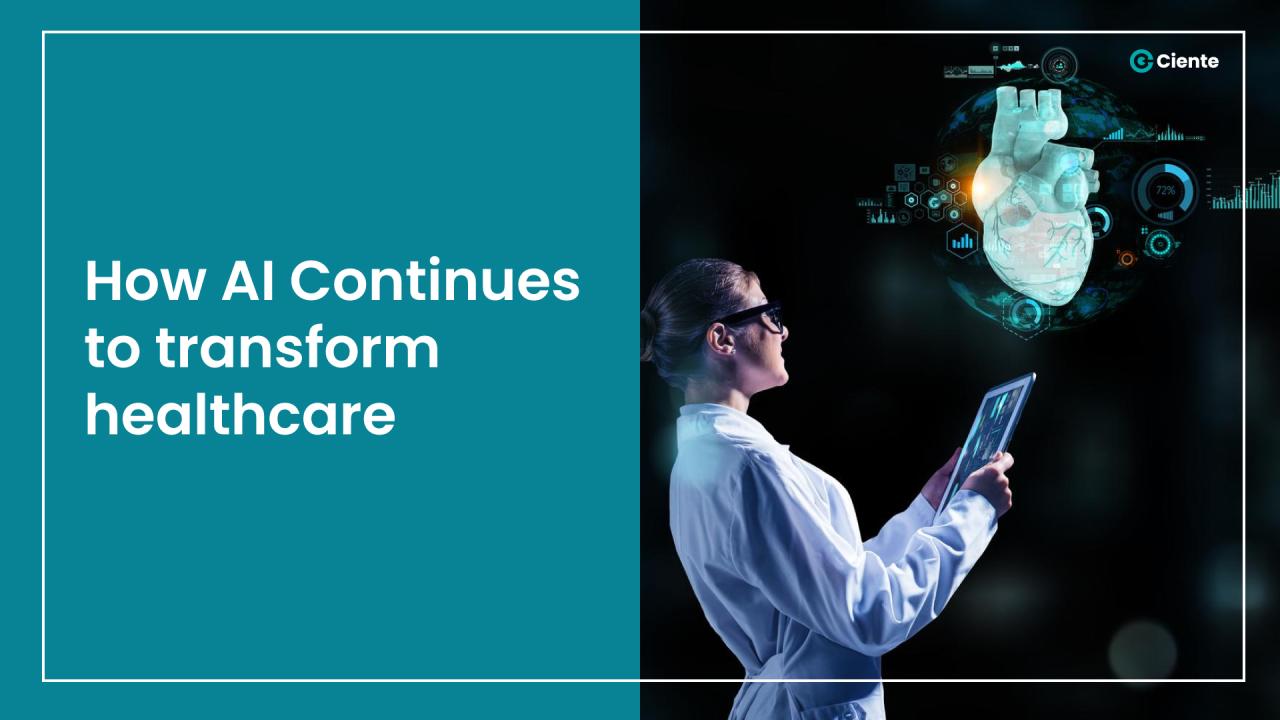
Source: ciente.io
The integration of AI into healthcare supply chains is undeniably transformative. While challenges exist, the potential benefits – faster drug development, reduced waste, improved patient care, and increased accessibility – are too significant to ignore. The future likely holds even more innovative applications of AI, driving efficiency, affordability, and ultimately, better health outcomes for everyone. The key lies in responsible development and implementation, guided by ethical considerations and robust regulatory frameworks.
This journey into the AI-powered future of healthcare supply chains is just beginning, and it’s a journey worth following.
Frequently Asked Questions
What are the biggest risks associated with using AI in healthcare supply chains?
Major risks include data breaches compromising patient privacy, algorithmic bias leading to unfair resource allocation, and a lack of transparency and accountability in AI decision-making.
How will AI impact the cost of healthcare?
AI has the potential to both increase and decrease healthcare costs. While initial investments in AI technologies can be substantial, long-term savings could result from reduced waste, optimized logistics, and improved efficiency in drug development and manufacturing.
What role will human expertise play in the future of AI-driven healthcare supply chains?
Human expertise remains crucial. AI will act as a powerful tool to augment human capabilities, not replace them. Human oversight, judgment, and ethical considerations will continue to be vital in ensuring responsible AI implementation.
What are some examples of AI already being used in healthcare supply chains today?
Examples include AI-powered predictive analytics for inventory management, AI-driven route optimization for medical deliveries, and AI-assisted quality control in medical device manufacturing.


